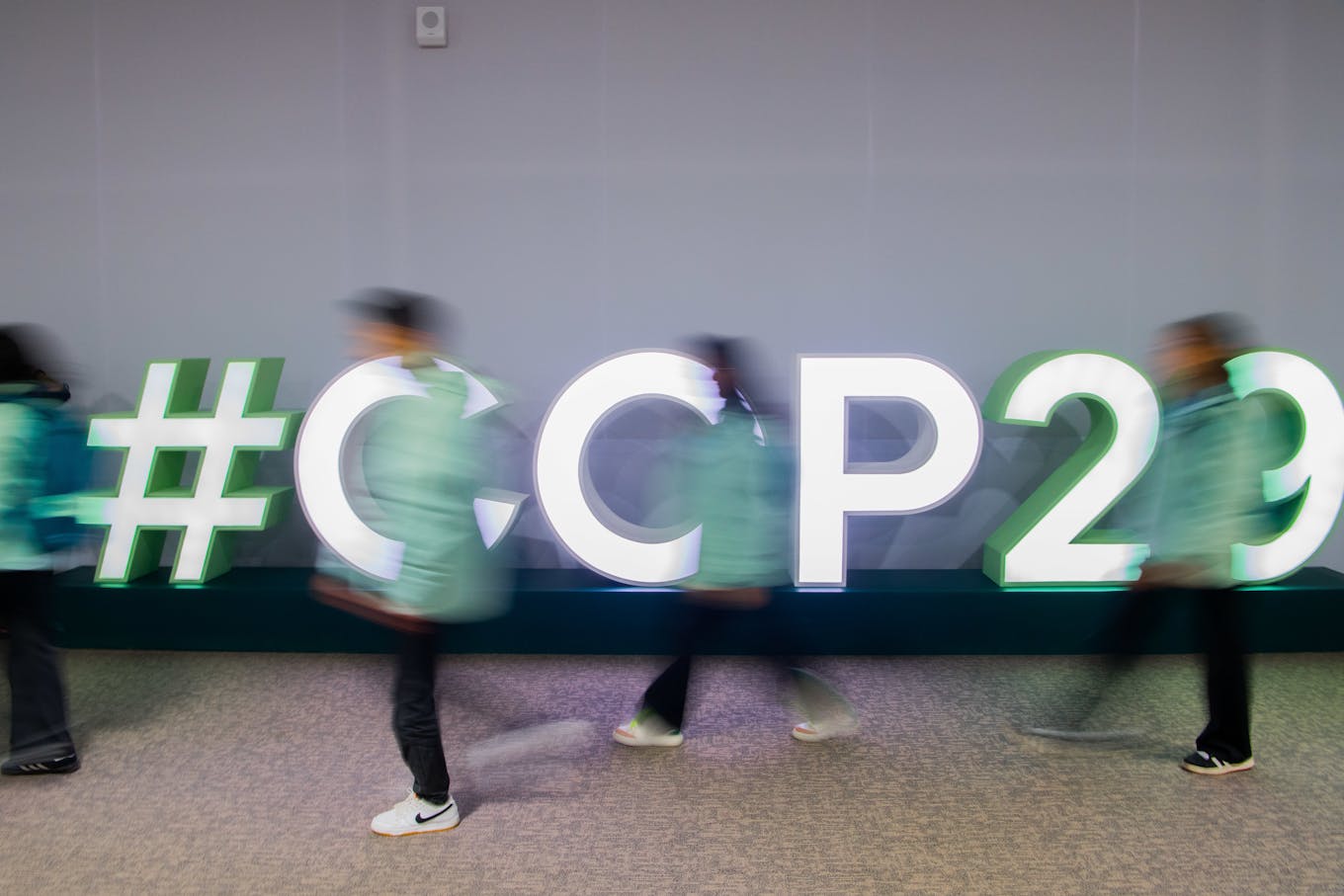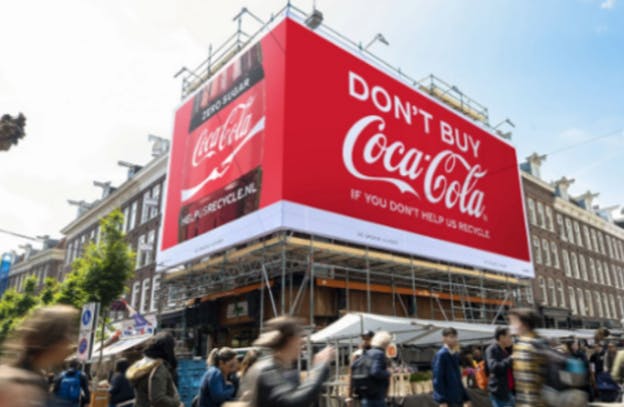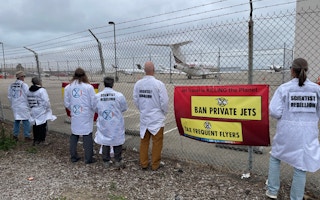In 2024, regulators in the West turned the screw on questionable green claims, while Asian policymakers took more tentative steps to improve guidelines and help companies avoid the backlash that continues to trip up corporate sustainability communications.
To continue reading, subscribe to Eco‑Business.
There's something for everyone. We offer a range of subscription plans.
- Access our stories and receive our Insights Weekly newsletter with the free EB Member plan.
- Unlock unlimited access to our content and archive with EB Circle.
- Publish your content with EB Premium.
The European Union started the year by adopting a new law — the Greenwashing Directive — to stop companies from greenwashing. Airlines were the most common culprits this year, with claims that air travellers can “fly carbon neutral” or “fly green” based on carbon offsets or sustainable aviation fuel receiving complaints to advertising watchdogs or finding their way into European courtrooms.
In Australia, arguably Asia Pacific’s most progressive country in tackling greenwashing, finance regulator Australian Securities and Investments Commission (ASIC) sued companies for making dubious green claims for the first time – and was successful, with guilty brands slapped with hefty fines (see below).
After South Korea became the first country in the region outside of Australia to threaten fines for greenwashing in 2023, no such penalties were dished out this year. Countries such as Singapore updated guidelines for how funds can avoid greenwashing, but refrained from stringent regulation.
Advertising and media industries came under scrutiny for enabling brands to greenwash, with United Nations secretary general António Guterres decrying advertising firms as “enablers of planetary destruction” for carrying advertisements for coal, oil and gas brands. However, the advertising industry’s biggest players resisted calls to stop working for fossil fuels clients, while media organisations went noticeably quiet on the subject.
Carolina Rodriguez, Asia Pacific managing director for communication services firm Leidar, noted that tougher regulations have led to an increased focus on data collection, verification, and disclosure of environmental, social, and governance (ESG) information. “This trickles into marketing and advertising – sometimes successfully and sometimes not,” she noted.
“Consumers and employees will continue to support companies that integrate sustainability into their business practices and communicate their actions and efforts to reduce their footprint. The key is that communications need to come after businesses do the real work,” she said.
Europe’s stronger regulations, such as the Sustainable Finance Disclosure Regulation (SFDR) and the Corporate Sustainability Reporting Directive (CSRD), have raised the bar at a global level, observed Rodriguez.
But companies are caught between doing what is right versus what is legal, she says, and this creates a complex space for communications. “Businesses trying to sell their products and services while sharing their sustainability track record, and doing merely what is legal is not a compelling selling point,” she said.
Another trend is “eco-fatigue” – consumers are more discerning and are not particularly moved or inspired by sustainability claims. Sending the wrong message can be more punishing than inaction as companies come under more public scrutiny. This defuses some of the greenwashing as people aren’t buying as before, but it’s also a problem for companies doing the right thing,” said Rodriguez.
There were fewer cases of brands called out for greenwashing in 2024 – we’ve listed 17 instances here – than in 2023, according to Eco-Business’ reporting on the issue. This could reflect the trend of “greenhushing”, where firms retreat into their shells and stop communicating their green credentials for fear of reprisals. In 2023, 22 cases of greenwashing were recorded, up from 18 cases identified in 2022, 11 in 2021 and eight in 2020.
Eco-Business casts a critical eye over the times organisations made green claims in 2024 that did not appear to pass the credibility test.
Greta calls out COP

“Azerbaijan has no ambition to take climate action. It is planning to expand fossil fuel production, which is completely incompatible with the 1.5°C limit and the goals of the Paris agreement,” wrote Thunberg. Image: COP29 Azerbaijan
Conference of Parties (COP) climate meetings have proven to be “greenwashing conferences” that legitimise a collective failure to ensure a liveable future and have allowed authoritarian regimes like Azerbaijan and the two previous hosts – the United Arab Emirates and Egypt – to continue violating human rights, wrote Greta Thunberg in an opinion piece in The Guardian just before the start of COP29 in Baku. The youth activist echoed the concerns of a group of policy experts including the architect of the Paris Agreement, Christiana Figueres, who said COP needs an overhaul following the revelation that an official from Azerbaijan’s COP presidency had been using the event to broker fossil fuel business deals. The open letter listed specific proposals for a COP reform.
EU sued over “green” labels

The Paris Agreement requires EU member states to cut their shipping and aviation emissions between 10 to 50 per cent from 2005 levels, and contribute to the EU’s overall goal of reducing net emissions by 55 per cent by 2030. Image: Flickr/ Kyle Wagaman.
Green groups including Climate Action Network took the European Commission to court over rules that label some airplanes and ships as climate-friendly investments and sought to force Brussels to upgrade its emissions rules for 2030. Campaigners said the European Union was greenwashing by labelling planes and ships that run wholly on fossil fuels as “climate-friendly”. It said national limits on greenhouse gas emissions for sectors such as transport and agriculture are unlawful, as they would fail to cut Europe’s emissions fast enough to meet the Paris Agreement’s 1.5°C target.
Virgin’s transatlantic “sustainable aviation fuel” flight

Virgin Atlantic’s banned radio ad received five complaints to the UK’s ad watchdog for greenwashing SAF. Image: SAF Investor
A radio advertisement for Virgin Atlantic was banned in the United Kingdom in August for claiming to make the first transatlantic flight “on 100 per cent sustainable aviation fuel.” Complaints to the UK’s advertising watchdog argued that the claim misrepresented the flight’s environmental impact and gave the misleading impression that burning the fuel at altitude was not bad for the environment. Virgin argued that consumers would understand that the claim referred to the type of fuel rather than implying the fuel had no environmental impact, but the ad was banned anyway.
Coke reneges on reuse target

Coke has dropped its re-use target to focus on recycling. Image: The Drum
Coca-Cola dropped a target made in 2022 for a quarter of its drinks to be sold in refillable or returnable containers by 2030 just before the global plastic treaty negotiations in November. It now has no target for reuse, and is focusing instead on increasing its use of recycled materials – although that target has slipped too, dropping to 35 to 40 per cent from 50 per cent by 2030. Environmental campaigners called the fizzy drinks brand’s abandoning of its 2030 pledge a “masterclass in greenwashing”.
Woodside drills while “decarbonising”

Woodside was criticised for a net zero target that allowed ongoing expansion of oil and gas extraction. Image: pgonline
Australia’s biggest oil and gas company was accused of flouting its net zero “aspiration” by ramping up production. Woodside Energy’s decarbonisation plan only covers its Scope 1 and Scope 2 emissions – those from its operations and the electricity it uses – which the company has said it has cut by 11 per cent in 2022. The Australian Conservation Foundation (AFC), a non-profit, said the claimed emissions reduction was based mainly on the firm buying carbon offsets, and noted that the climate pollution from Woodside’s operations has actually increased by 3 per cent. AFC called Woodside’s plan “net zero greenwashing”. The company’s chief executive has argued that the firm can still decarbonise while drilling, pointing to certain decarbonisation pathways that enable it to.
No meat to JBS net zero claims

“JBS USA’s greenwashing exploits the pocketbooks of everyday Americans and the promise of a healthy planet for future generations,” New York Attorney General Letitia James said. Image: Clara Bastian/Slate
The world’s biggest meat company, JBS, was sued in the United States for misleading consumers over its decarbonisation claims. JBS’s claim that it would achieve net zero emissions by 2040 was questionable given the company’s plans to increase production, and therefore grow its carbon footprint, said attorney general of the state of New York Letitia James. JBS Group’s reported greenhouse emissions are 71 million tonnes, more than the carbon footprint of some countries.
Cooking with “renewable gas”

“Renewable gas” sponsored popular Australian cooking show MasterChef. Image: renewable-gas.com.au
Gas producers and infrastructure firms joined forces to create the ‘Renewable Gas‘ brand in 2024, which claims that biomethane or hydrogen can be used in homes across Australia. The brand sponsored popular cooking show MasterChef, which prompted non-profit Comms Declare to make a complaint about potential misleading advertising to Australia’s consumer regulator. A radio ad for Renewable Gas claimed that it has “no additional emissions” and that a “carbon-friendly croquembouche would taste even sweeter”. Comms Declare director Belinda Noble said the ad could potentially be greenwashing. “Renewable Gas is a vague term that refers to several hydrogen and biomethane products at different concentrations and availability, and those used in the MasterChef kitchen still create significant climate pollution,” she said.
Lululemon, environmentally positive?

Lululemon claimed to be environmentally positive while its emissions more than doubled. Image: Lululemon
Lululemon was subject of a complaint to the Competition Bureau Canada by non-profit Stand.earth over the sportswear brand’s “Be Planet” campaign, in which the company presented itself as an “environmentally positive” brand. The company’s own reporting showed that Lululemon’s carbon pollution has doubled since making a claim to be environmentally positive, Stand.earth said. “Their exponential growth has been built on fossil fuels, from clothing literally made from fracked gas to polluting manufacturing that threatens the health of communities in the Global South. Lululemon’s mantra is supposedly ‘Be Planet,’ when in reality it’s ‘Be Profit,’” said Tzeporah Berman, international programme director at Stand.earth.
Shell wins sustainability award
When Shell won a sustainability award in Singapore eyebrows were raised among the city-state’s sustainability community. The oil and gas major said that “sustainability is an integral part of our business strategy and purpose” in a LinkedIn post to trumpet its award from the South West Community Development Council, and cited its biodiversity conservation efforts and energy efficiency measures taken at its facilities. One social media poster said: “Almost a quarter of a century on, nothing has changed at Shell. Always trying to sell a story rather than solve the problem.” Another remarked: “Think they are missing the huge elephant in the room - their fossil fuel emissions across the value chain. Can accept this, but where is the transition, backed up with steadfastness investment?” Shell won the award at a time when the company was under fire for rolling back its climate targets.
“Fly carbon neutral” with Qantas

Qantas claims its customers can “Fly carbon neutral” by purchasing credits that go towards reforestation projects in Papua and clean cooking stoves in Ethiopia. Image: qantas.com
Australia’s national carrier Qantas was on the receiving end of a complaint to the Australian Competition and Consumer Commission over its use of terms like “acting sustainably” and “fly carbon-neutral” in its advertising. The complainant, advocacy group Climate Integrity, said that Qantas uses similarly misleading language in its communications to Dutch airline KLM, which was found guilty of greenwashing in a European court this year (see below). Australia’s national carrier, which enables customers to offset their emissions through a carbon credits programme, produces the equivalent of 4 per cent of the country’s annual carbon emissions.
Historic precedent in aviation greenwashing?

KLM’s advertising was found to be illegal, setting a precedent for airline advertising globally. Image: KLM
KLM was found to have breached European consumer law in its advertising by a Dutch district court in March. The court ruled that the Dutch carrier’s claims suggesting that flying can be sustainable, as well as advertising suggesting that its “offsetting” products compensate for the climate impact of flying, are misleading and are therefore illegal. The ruling set “a major legal precedent with ramifications across the international aviation sector and for all companies advertising their commitment to the Paris Agreement,” said environmental law charity ClientEarth.
Exxon funding climate solutions?

NTUDivest’s social media campaign in opposition to their university’s Exxon-sponsored low carbon solutions corporate lab. Image: NTUDivest
The launch of a low-carbon solutions lab at Singapore’s Nanyang Technological University (NTU) was challenged by a student activist group, which questioned the credibility of the company sponsoring the lab, ExxonMobil, funding climate solutions. “From climate breakdown to toxic environmental pollution, ExxonMobil is no stranger to playing down their effects,” the group NTUDivest said. It challenged NTU on whether the lab’s solutions would be accompanied by a reduction in Exxon’s products and therefore emissions.
NGO created by PR firm to greenwash plastics industry?

Alliance to End Plastic Waste was created by a PR firm to greenwash the plastics industry, an investigation by Greenpeace alleged. Image: Water Alternatives Photos, CC BY-SA 3.0, via Flickr.
Another year, another take-down of the Alliance to End Plastic Waste (AEPW), the Singapore-headquartered non-profit backed by some of the world’s biggest plastic producers. An investigation by Greenpeace found that five oil and chemical firms on AEPW’s executive committee – Shell, ChevronPhillips, ExxonMobil, TotalEnergies, and Dow – produce more plastic in two days than AEPW’s projects have cleaned up in past five years. The investigation also revealed that AEPW was created by public relations firm Weber Shandwick at a time when bans and taxes were being introduced to curb plastic pollution. “It’s hard to imagine a clearer example of greenwashing in this world,” said environmental campaigner Bill McKibben. A spokesperson for AEPW told the media that it “respectfully disagrees with the allegations and inferences, including that the organisation’s purpose is to greenwash the reputation of its members.”
“Sustainable Plus” fund invested in fossil fuels

In a landmark case in Australia, Mercer was found to have false claimed that its “Sustainable Plus” fund excluded fossil fuel interests. Image: mercersuper.com.au
Australia’s federal court ruled in August that Mercer Superannuation, a pension savings scheme, had misled the public with its “Sustainable Plus” fund, which was promoted as excluding companies that profit from fossil fuels, alcohol or gambling. That claim was found to be false, as the fund was found to have invested in 15 fossil fuel firms, as well as various gambling and alcohol stocks. Mercer was fined AU$11.3 million (US$7.2 million) and obliged to publish a correction notice on the sustainable investments page of its website. The case was the first of its kind to be brought to court by ASIC.
Vanguard’s “ethically conscious” fund

Vanguard did not properly screen its investments for ESG criteria, an Australian federal court found. Image: carboncredits.com
One month after the Australian federal court’s ruling against Mercer, ASIC successfully sued Vanguard Investments Australia over the investment management firm’s Ethically Conscious Global Aggregate Bond Index Fund, which was found to have misled the public by not properly screening the fund’s securities against ESG criteria. ASIC noted that the A$12.9 million (US$8.2 million) fine Vanguard received was “the highest [penalty] yet for greenwashing conduct” in Australia, and should send a “strong deterrent message to others in the market to carefully review any sustainable investment claims”.
“Eco-friendly” air travel

VietJet claims its customers can “fly green”. The airline’s green credentials are based on the fuel efficiency of its fleet and the use of digital services. Image: VietJet.com
Airlines took a hammering for greenwashing in 2023, with the likes of Lufthansa, Austrian Airlines and Etihad facing legal charges for claiming that burning kerosene at altitude could be good for the planet. So it was surprising to see Vietnamese budget carrier VietJet claiming that flying for less than the price of a round of drinks to Vietnam could be done in a way that helped its passengers “contribute to a greener future” in a sales promotion in November, even with its fuel-efficient fleet and digital services that saved on paper. A complaint was lodged with Singapore’s advertising watchdog. A ruling is pending.
Sustainable finance greenwashing?

MUFG was accused of sustainable finance greenwashing for funding the operation of RGE. Image: Robin Hicks / Eco-Business
Sustainability-linked loans (SLLs) came under scrutiny this year for funding ecological destruction in Asia. A report by campaign group Rainforest Action Network found that Mitsubishi UFJ Financial Group (MUFG), a Japanese megabank, had lent millions of dollars in SLLs to Indonesian resources firm Royal Golden Eagle, which it said was linked to deforestation in the palm oil concessions of a company it identified as an RGE subsidiary. RGE refuted the claims, while MUFG says it conducts a rigorous assessment of clients to ensure plantations are managed in an environmentally and socially responsible manner when considering financing for business activities connected to palm oil plantations.
Did we miss other examples of greenwashing? Let us know at news@eco-business.com. We’ve updated the story to include two more examples since the time of publishing.
This story is part of Eco-Business’ Year in Review series, which looks back at the stories that shaped the world of sustainability in 2024.












